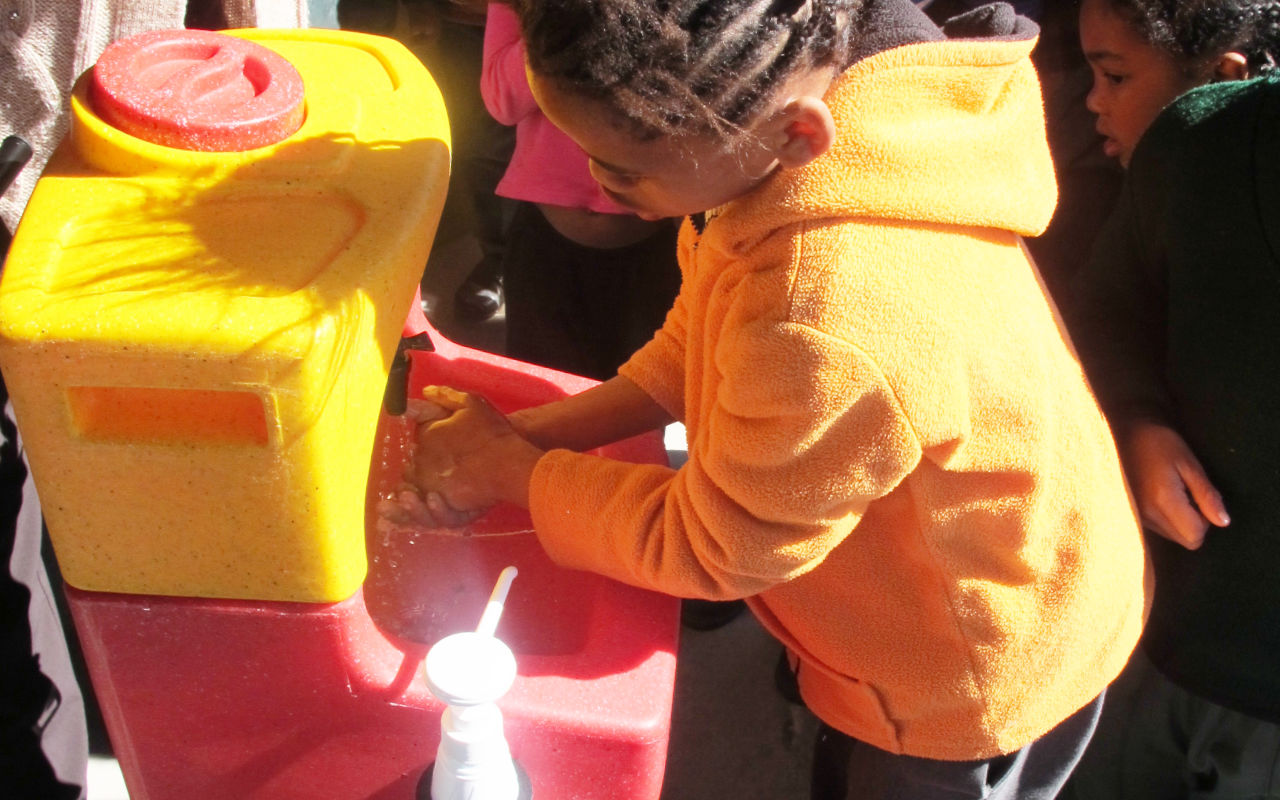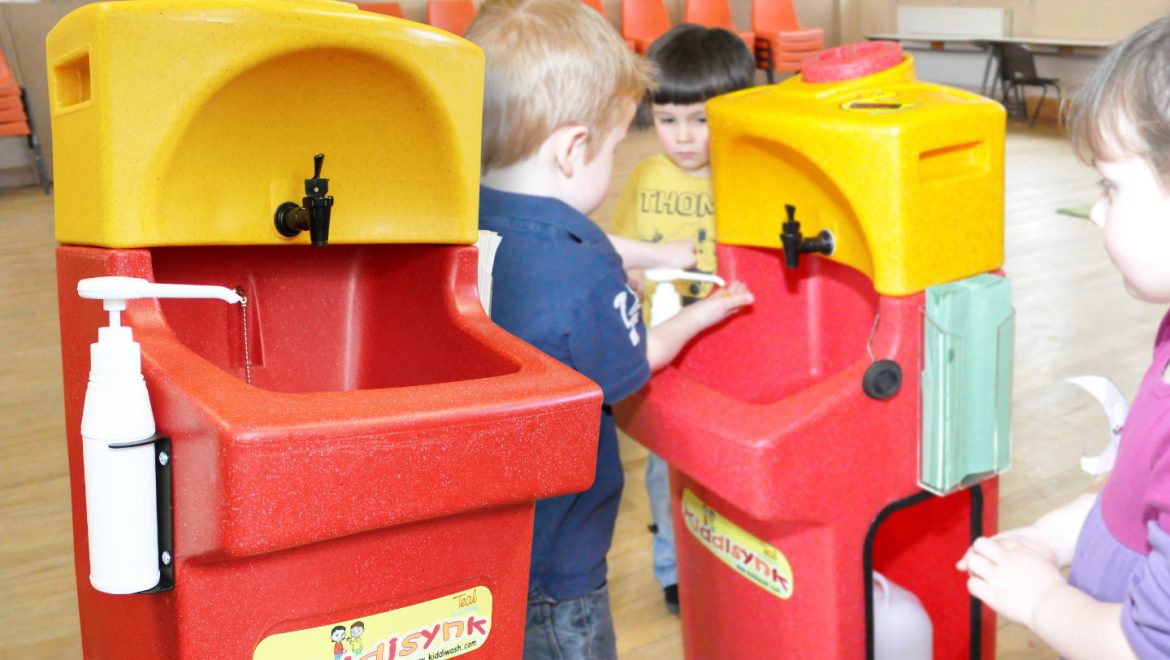This is why teaching children to wash their hands well is crucial says doctor
It’s absolutely vital not to “cut corners” when it comes to hand hygiene in preschools and nurseries. Early years facilities are admittedly “particularly complicated places”, with all those toys, books, play equipment, messy and outdoor play being potentially effective ways of spreading illness. To say nothing of going to the toilet or being in contact with someone who’s already ill…
Despite these complications or challenges – or rather because of them – teaching effective hand washing, though a challenge, is vital according to a report on the Teach Early Years website.
The article, written by Dr Carl Edwards, reveals that germs are everywhere, with even ‘clean-looking’ hands harbouring as many as ten million. A sobering thought. And though not all are harmful, it is very easy to pass on illnesses to others, with examples being given including e.coli, bird flu, norovirus, Campylobacter and MRSA.
Younger children especially, touch their mouths, faces and eyes throughout the day, though everyone does it far more than they realise.
Teaching to wash properly
It is for this reason, Dr Edwards says, that effective hand hygiene is vital – and teaching youngsters to carry out this important activity properly, at the right times and in the right way, is crucial.
“It sounds like such a simple task – and it is, but it’s only effective if you’re doing it correctly! Proper hand-washing requires soap or hand wash and water and should last for at least 15 to 30 seconds.”
He reveals that the actual washing process is effective when the rubbing of the soap physically removes the dirt and bacteria. In short, germs aren’t killed by the washing actions – they are literally washed away.
Examples of key hand washing moments for staff are given in the report as “before and after preparing food, attending to a child or someone who is ill”. “If you wear contact lenses, you should always wash your hands before and after applying the lenses to your eyes” writes Dr. Edwards.
Tips for Nurseries on Effective Hand Hygiene »

Learning to wash hands with a KiddiSynk mobile handwash unit
Mobile hand wash units for children can be used indoors and out
The Kiddiwash range of warm water hand wash units are perfect for smaller hands – and are ideal where a portable solution is required.
Whether you require a larger wheeled unit such as the KiddiSynk, or the ultra portable Kiddiwash Xtra, you can ensure that all children in your care are able to wash their hands whether inside or out.


